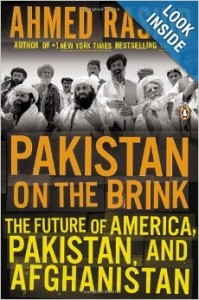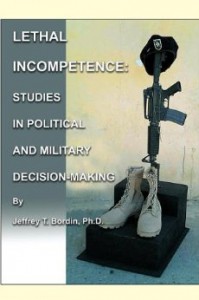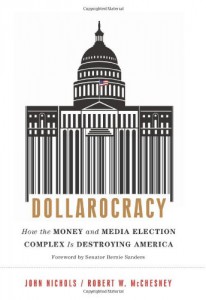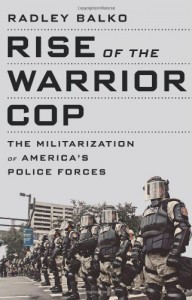
Ahmed Rashid
This is an extraordinary book that required a great deal of time, not in the reading, but in the reflection. This will be a longer review than usual, even for me, because this book contains all of the insights that the US and the Coalition have refused to embrace for the past twelve years. It is never too late to learn.
The author opens with a well-known quote on the dangers of drawing a line between fighting men and thinking men, lest one end up with the fighting being done by fools and the thinking by cowards. To this I would add another group, the “deciders,” who in the absence of any familiarity with fighting or access to intelligence with integrity, end up making decisions whose true cost in blood, treasure, and spirit crosses the line dividing legitimate actions “in the national interest” from “crimes against humanity.
Positive up front: US under Obama has given more of everything and progress has been made across both military (stronger Afghan army, degraded Taliban) and socio-economic (education, health, media) domains. To that I would add elections. Afghanistan is about to experience the most extraordinary election cycle it has ever been my privilege to observe.
In contrast, the author finds that Pakistan has worsened in every possible manner, in large part because the US has not understood Pakistan, has lacked a strategy (or the intelligence with which to devise a coherent sustainable strategy), and in failing, the US has allowed Pakistan to drag itself down and Afghanistan to be a regional albatross – a cancer on all others.
The author is quite blunt in describing an incoherent even infantile US decision-making environment characterized by “contradictory policies, intense political infighting, and uncertainty.” In being inept, the US opened the way for regional players to manipulate, exploit, and exacerbate.
Chapter 1 on the Bin Laden raid is utter nonsense, this may be the price the author pays to maintain access and avoid being assassinated. See instead The Bin Laden Story 00-90 at Phi Beta Iota.
The author points out that by 2014 the Coalition engagement in Afghanistan will have been longer than WWI and WWII. In my own mind this highlights the fact that the US in particular, but the Western nations in general, have lost their integrity. They are incapable of collecting and analyzing the truth, thinking holistically, evaluating true costs over time, or devising a sustainable strategy that ultimately achieves the desired end-state: peace and prosperity. A churlish skeptic would point out that no, the West has achieved precisely what it wants, public theater at home, a massive transfer of wealth from the individual taxpayer to the military-industrial complex, and personal enrichment of most policymakers, at least in the USA. Either way, the larger publics lose at home and abroad.
Pakistan and Afghanistan matter not only to Central Asia, where other countries such as Uzbekistan are beginning to implode, but to the Middle East and India. At the very end of the book the author ponders how Afghanistan might follow the Turkish example of Islamic/secular regeneration, and I cannot help but wish that 12 years ago the Coalition had had the brain to leave the British home and make Afghanistan a collaborative effort among Muslim nations led by Turkey.
QUOTE (19) “After a decade, NATO has achieved none of its strategic aims – rebuilding the Afghan state, defeating the Taliban, stabilizing the region – so what assurances can it now plausibly give that it will do so by 2014?
The author defines Afghanistan today (2012) as a corrupt and incompetent government, a dysfunctional bureaucracy and inoperable justice system, high on drugs and illiteracy, with a police force that has the highest desertion rate in the world.
The sucking chest wound: no indigenous economy. Bush specifically refused to invest in roads, dams, water, and power. Karzai has been a complete failure [the author gives Karzai credit and cause across the book, outlining the many ways in which the US failed to develop a relationship of trust with him.]
Pakistani military is out of control and the deal breaker. Nothing the US or other can do will overcome an arrogant ignorant Pakistani military continuing to support extremists and their violence within Afghanistan.
QUOTE (22): “If the west is to depart Afghanistan by 2014 and leave behind relatively stable regimes in Kabul and Islamabad, it will need a multidimensional political, diplomatic, economic, and military strategy.”
Answering this challenge is the purpose of the book.
My nine page detailed summary for professionals coping with Afghanistan and not having the time to read this excellent work, is posted at Phi Beta Iota the Public Intelligence Blog.
Books Cited by the Author:
Cables from Kabul: The Inside Story of the West's Afghanistan Campaign
Power Struggle Over Afghanistan: An Inside Look at What Went Wrong–and What We Can Do to Repair the Damage
Books I Have Reviewed Circling AF-PK-Islam:
Lines of Fire: A Renegade Writes on Strategy, Intelligence, and Security
Surrender to Kindness: One Man's Epic Journey for Love and Peace
Reconciliation: Islam, Democracy, and the West
Organizations at War in Afghanistan and Beyond
Uncomfortable Wars Revisited (International and Security Affairs)
Ghost Wars: The Secret History of the CIA, Afghanistan, and Bin Laden, from the Soviet Invasion to September 10, 2001
The Thistle and the Drone: How America's War on Terror Became a Global War on Tribal Islam
Also Recommended:
Deadly Embrace: Pakistan, America, and the Future of the Global Jihad
Best wishes to all,
Robert David STEELE Vivas
INTELLIGENCE for EARTH: Clarity, Diversity, Integrity, & Sustainability
20131014 RASHID Pakistan on the Brink Review by Steele [Short & Long]
– – – – – LONG REVIEW (SUMMARY) BELOW THE LINE – – – – –
Continue reading “Review: Pakistan on the Brink–The Future of America, Pakistan, and Afghanistan”







